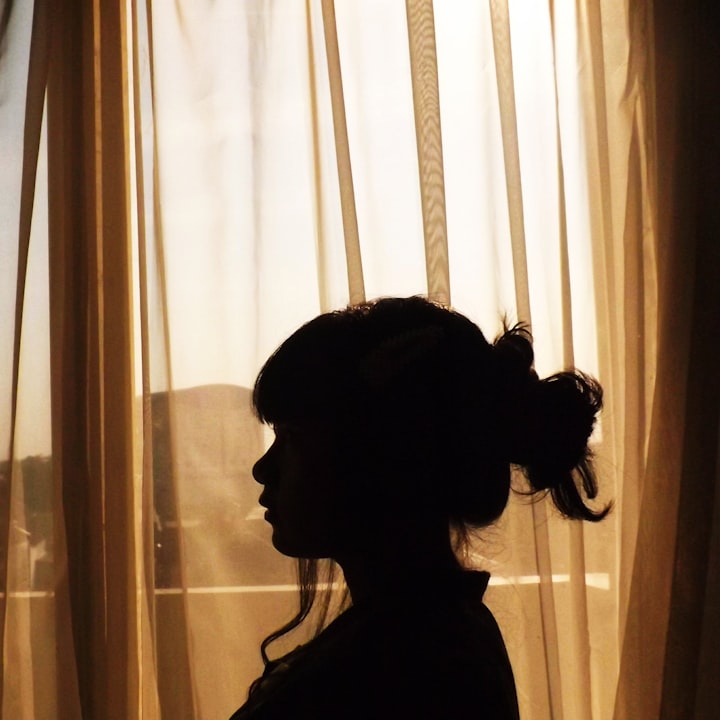
Let’s address a topic that totes a wagon full of myths with it where ever it goes: Anorexia. As somebody who has Anorexia, whom I call “Ana”, I would like to first start with a disclaimer. Eating disorders; anorexia, bulimia, orthorexia, pica and over-eating all have one thing in common: every single one of them is different for the person experiencing them. Which is why I think it’s important to fully understand a mental illness that may or may not affect us, we should first identify where the root of disordered eating comes from.
Control. When we think about our lives in conjunction to control a lot of people will argue that we do not have as much control of our lives as we might like. A separate handful of people are the ones designing posters for middle school class rooms that read, “Life is choices,” in terrible fonts. (Why they put these in middle and high schools confuses the hell out of me as nobody really truly understands who they are or what they might want to be until you are well out of high school.) The point I’m trying to make: Control is a tricky thing. We want to feel that we are truly in control of our lives, right? We also want a sense of spontaneity and openness to what the world may bring our way. Often, eating disorders such as Ana are formed when we feel that we cannot control what we once used to. I’ll use myself as an example.
Long story condensed: A lot of things happened in high school that encouraged others to treat me like a victim. My best friend passed away at 17, I had a cancer scare shortly after, and my boyfriend cheated on me with someone I thought was a good friend. When I graduated, I was thrilled to ditch my small town label of “a victim” and move onto one that better suited me. I marveled over opportunity that I had the space in an expanding city to do so.
My first weekend at college I survived a sexual assault attack, and I didn’t tell a soul (other than my trusted wiener dog, Megella) for two years following. I was terrified that if I spoke up, others would treat me the same. Out of holding this secret for so long, I slowly felt the control I had over my life slipping. To correct it, I controlled the only thing I felt I still had the power over: What I ate. A lot of people think that an eating disorder is a choice that people make 100 percent based on the fact that they want to be thin or look a certain way. This might be true for some of the eating disorder population. What they don’t know is that the urge to be thin falls in the family of the urge to disappear entirely. The feeling that you are not deserving to take up or occupy space. You isolate yourself, you lie to those closest to you to maintain the “everything is fine” façade.
At thanksgiving my older sister who is a Registered Nurse loudly announced to my entire family that I had a problem. My parents brought me to the Melrose Center in Minneapolis, MN. A care facility center that only focuses on eating disorders. I gave up college, my RA position, three scholarships, an internship, and two jobs. After 11 days in ISL, four months in day treatment, a year of weekly therapy, and a kick ass support system by my side through it all: I figured out how to live with Ana. Here are some of the things I learned the hard way that might be helpful to someone else:
Ana rarely ever shows up to the party alone.
She has friends such as PTSD, OCD, anxiety, depression (Diana), etc. For me, identifying the origin of where things came from was important. My therapist taught me to separate myself from my anorexia—that we are two very different things. This allowed me to A) Come up with the name “Ana,” which allows me to talk to friends and family about it in a public space without screaming out, “I have anorexia!” B) Start to identify that the feelings I was having about not being good enough or even hating myself, came from that same bitter seed Ana plants in your head, AKA mental illness.
You need a support system.
During my time in treatment I got to know a lot of other individuals. I started to notice a very serious pattern the more I got to know them. It seemed that the people who left treatment with friends, family or any kind of “support” more often than not, only came back for maintenance and therapy. As eating disorders often cause you to isolate yourself, some of my fellow “inmates” (I joke that treatment was like luxury prison) would be back in Melrose twice as fast and three times as much.
The reason for this is clear: You need a support system outside of therapy to keep you motivated in times when Ana seems too much to take on your own. I can’t emphasize this enough to people who are friends to individuals with disordered eating: Ask to eat together. Go grab a meal. Help encourage healthy habits around eating by taking off the pressure. Don’t be judgmental of what sounds good to them (it might be junk food, but hey! They’re eating!) Be open to different eating options and styles. Excuses are Ana’s best friend. When I was most sick, I would lie to my friends and family about eating. Look your loved one in the face and let them know that you are a safe space away from the negativity that is an eating disorder. Make food a celebration of self-love, rather than a dreaded time of the day. When I started eating again, I ate in my living room on the floor sitting on pillows because I love relaxed finger food settings.
Practice opposite action.
This was the hardest thing for me to learn how to do, and I still struggle with it. Opposite action is a therapy tool used to prevent you from falling into old habits. The concept is simple: Practice doing the opposite of what you want to do. You want to stay in, isolate yourself and not talk to anyone? Practice opposite action. Make plans with a friend. The first friend you reached out to is busy? Find another friend to spend time with. Whatever you don’t feel like doing, you do. At first this practice was quite literally cringe worthy. I would take double the time to get ready, but I always made myself go. I am fortunate to have friends that will not accept “no” for an answer. I find that getting myself to my plans is the hardest. Once I’m there, with friends in a fun environment I am overall happy I went. My mood changes completely and I’ve successfully given Ana the metaphorical middle finger.
Have grace with yourself.
Opposite action is a great tool, but it is hard. At the end of the day we are all only humans. It’s important that you have grace with yourself and others. There are going to be bad days, and we cannot avoid them no matter how hard we try. The most important thing is that we try again tomorrow. Having grace with yourself is an act of self-love. It’s important that we recognize the difference between making an excuse to stay sick and making an excuse to allow space for yourself. Saying no to plans once in a while is okay. Everything in moderation.
Speak up.
I don’t tell everyone I meet that I have anorexia—usually only those close enough to want to know the true me. I have co-workers who joke about wanting to look the way I do, or fret over the calories in their lunch box. More people than not will bash their eating habits publicly. It is moments like these that I am not entirely silent. Try to remind people about setting healthy habits. Also try to remind people of shame and how contagious it can be.
Some women in particular love to hound themselves and others about eating the “right way.” The truth is—unless you know an individual’s complete dietary history and are a registered dietician—you have no right to comment on what another is eating. Humans are naturally judgmental, if you disagree with what the person next to you is eating, go eat someplace else if your comments cannot be kept to yourself. More than not, it is the micro-aggressive comments others make that can be the most triggering. “Didn’t you already have a piece of candy today?” or “Oh that is an interesting choice for lunch. Certainly, one I wouldn’t make.” It’s important to speak up against these kinds of comments. I’ve used, “It is my fifth piece of candy, good thing this body is my choice.” My personal favorite that really stops food shamers in their tracks, “I appreciate for your concern in my choice to eat this *insert meal here*. Considering I didn’t eat for two years, I think this will be okay. Please keep your judgments to yourself in the future.” I don’t say these things to be rude, but some people don’t know that what they say can be very offensive and hurtful. They think they are helping, when in truth they’re hurting. Please speak up in these situations, because it’s the only way they will change.
Overall, living with an eating disorder can be exhausting, but allowing others to understand a bit more into why they exist and how they may help is a step in the right direction. My support system each contributed a “tip” they wanted me to outline that helped them understand what I face living with Ana. There is much more to be said here, but we all must start somewhere.
If there are questions or if you’d like to see more on this topic, please comment below. Thank you for reading.






Comments
There are no comments for this story
Be the first to respond and start the conversation.